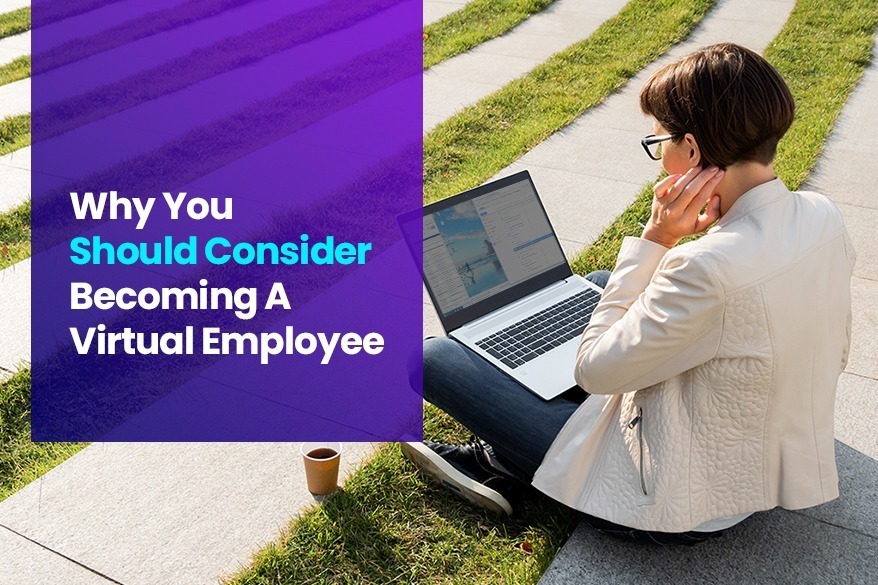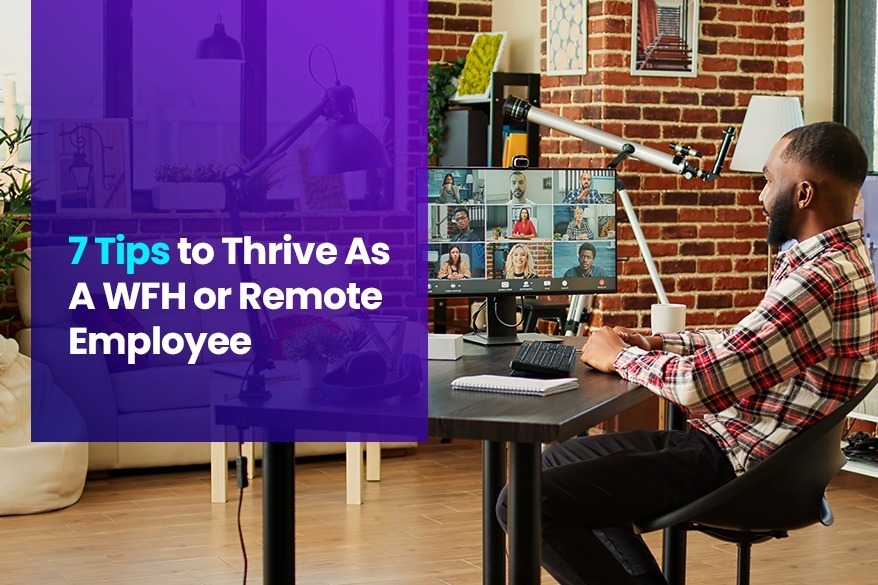
Becoming a virtual employee isn’t considered a niche career choice anymore. In fact, a study by Forbes revealed that “by 2025, 32.6 million Americans will work remote.” Even across the globe, many seasoned Millennial workers and Gen Z graduates choose to work in a virtual or hybrid set-up.
But what does it actually mean to become a virtual employee? Are you qualified to make the jump and how will it affect your working routine and career options?
What is a virtual employee and a remote work set-up?
A virtual employee is a person who performs a job online and often works remote, i.e. outside the employing company’s location and/or country. Virtual employment can range from part-time to full-time hours or can be on a project-based, contractual arrangement.
In fully virtual organizations, all communication, collaboration, and task management are done online. Executives, managers, team leaders, and employees are usually located in different parts of the world and connect via online apps and productivity tools like Zoom, Asana, Trello, and Google Office Suite.
They still have their own internal policies, company departments, and products and services. They operate similarly to a traditional brick-and-mortar business except all business is conducted within a virtual space.
Would you enjoy being a virtual employee?
Even in a highly connected and digital working world, not everyone is suited to the online work set-up. There are different expectations and challenges that come with the environment. Some people have the potential to thrive, and others may jump right back into on-site roles.

If you’re considering making the leap, here are some signs you would be a good candidate for virtual employment.
- A traditional office culture doesn’t excite you.
Water cooler breaks, lunch time gatherings, and the occasional office chatter in a trendy open-space building is the common corporate trope. It can seem very fun to work in such a lively environment but not everyone is keen on it. If you prefer working without the socialization and culture that’s prevalent in most on-site jobs, working remotely might be for you.
- You prefer working independently than within a team.
Most virtual employees work independently with minimal supervision and collaboration. In a virtual employment setting, you will most likely work in your own home office away from colleagues. Introverted and reserved persons will find this the most conducive to deep work.
- Self-motivation and discipline are in your DNA.
The work ethic required of virtual employees can be a bit more rigorous than on-site members just because a manager or supervisor is not physically present. If you make the transition to online work, you need to be strict with your working hours, time management, and communication skills. More is expected because of the independence.
- You enjoy working from different locations.
One of the perks of being a virtual employee is mobility. You can work literally anywhere in the world if you have a stable internet connection. People who need regular changes in scenery find a boost in creativity and morale. This could also be a possibility for you.
- Part-time jobs and personal projects are important to you.
Full-time virtual employees with impeccable time management skills have the luxury of taking on side hustles and personal development projects. If you can effectively multitask and need multiple sources of income, then online work will be a great milestone in your career.
What are the benefits of becoming a virtual employee?
If the above qualities apply to you then it might be time to transition into the online workforce. But if you still need convincing, there are also attractive benefits involved in making this career shift to consider.
- There is exposure to global talent and work standards.
A virtual employee isn’t limited to just colleagues in the same country; many are exposed to global teams with members from different continents. Working with a diverse talent pool and having an international experience broadens your perspective and challenges you to improve your skills.
- You can sharpen your skills and expand your knowledge.
Working in a virtual setting forces you to acquire new skills and learn new techniques that are necessary in an online company. And because it’s a faster dynamic in an online setting, you must continuously update your knowledge base and keep up with trends, developments, and news in your industry.
- Working with bigger foreign brands is now a possibility.
Being limited to your geographical location while also knowing you can compete on a global scale is a frustration for many. With virtual employment, you can break those boundaries and find yourself working with brands you’ve only heard of and can connect with people you’ve admired in the industry.

- You can enjoy higher pay.
The many demands of a virtual working environment are somehow compensated with a more competitive salary package. You can often find higher pay and better benefits, especially if you are required to work in a different time zone, to accommodate changing shift schedules, or to take on more responsibilities.
- Virtual employees enjoy more work-life balance.
Cutting out the work commute, idle breaks, and unnecessary meetings required in shared office spaces means increased productivity. The sooner you get your work finished, the sooner you can enjoy other aspects of your life. There’s no need to sacrifice sleep, hobbies, or social gatherings just to complete your to-do list.
Being a virtual employee is becoming more prevalent and even expected in today’s workforce. Deciding on whether this is the right career choice for you depends on multiple factors. There will always be challenges and hurdles to overcome but if you can immerse yourself in this setting, it might just be the defining moment of your entire career.
Interested in making the leap? At Engage, we’re always looking for top talent! Learn more about how we can help with your next career move.



